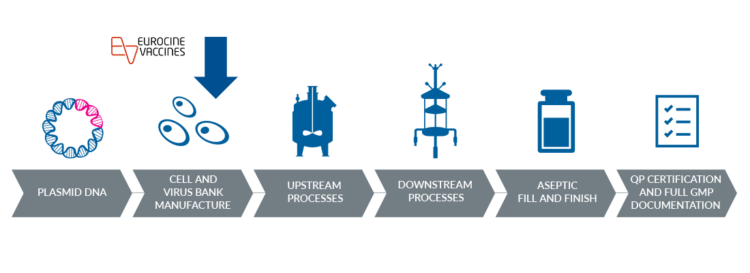Eurocine Vaccines initiates process development of the vaccine candidate against chlamydia
Eurocine Vaccines AB announces the completion of knowledge transfer and preparations for the development of the manufacturing process for the company´s chlamydia vaccine candidate. The process development activities initiated at Biovian according to schedule, are planned to result in pilot-scale batches necessary for the toxicological and clinical studies later in the project.

Sandra Jeldes Granstrand, Director of CMC Development, Eurocine Vaccines: “It is extremely satisfying to see the rapid and precise work with transferring our know-how in this development project. Biovian, our selected CDMO, has proven their scientific and technical ability in this area of biologic process development and GMP manufacturing”.
Soile Tuomela, Project Manager at Biovian: “We have reached an important milestone by generating the research cell bank for the work to come. Now, the extensive work with developing a quality assured manufacturing process and thorough documentation has begun. My team and I are thrilled to work at the frontier of advanced drug development with the experts of Eurocine Vaccines”.
About the need for a chlamydia vaccine
Chlamydia infection is the most common type of sexually transmitted infection and the majority of sexually transmitted chlamydia shows no symptoms. It is estimated that 130 million cases of chlamydia infection occur globally each year. The infection can, especially in women, lead to severe complications, such as infertility, ectopic pregnancy, and premature birth. In addition, chlamydia infection can lead to increased susceptibility to other sexually transmitted diseases. Therefore, there is a strong need for preventive vaccines against chlamydia, a need that has also been identified by the WHO. Despite that, there are only two products against chlamydia in clinical phase, one of which is a preventive vaccine candidate.
Furthermore, effective vaccines and vaccination programs against bacterial infections are one of the best ways to counteract the development of antibiotic resistance, a serious threat to global health.


